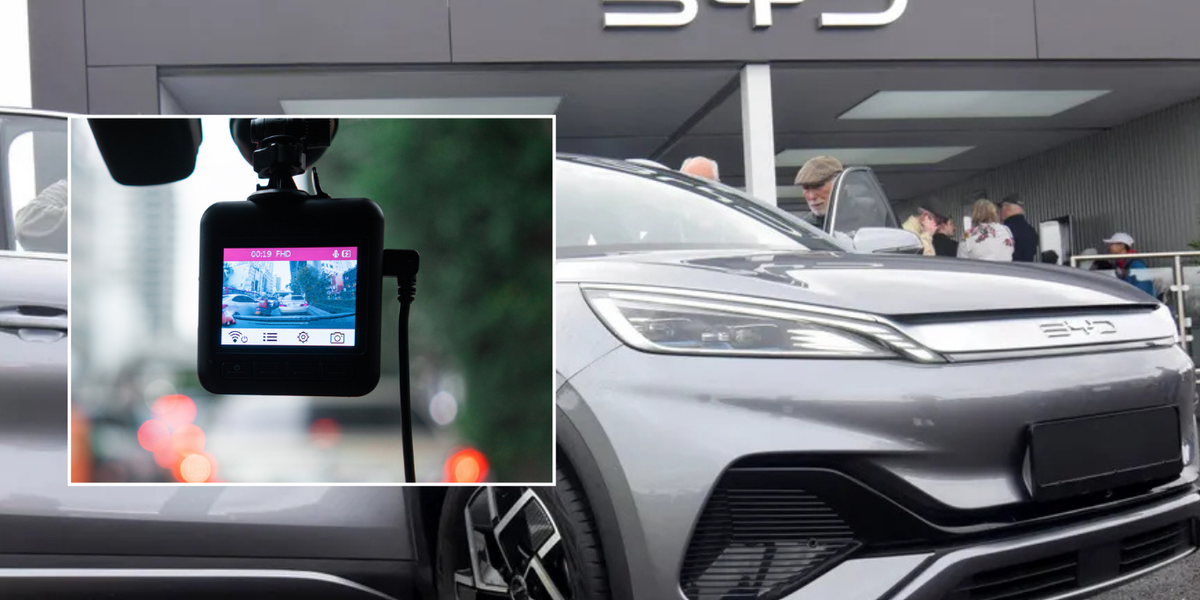Drivers have been warned four out of five electric vehicles are set to face sharp increases in car tax costs with annual charge of £425 coming in just a matter of weeks.
The warning follows Vehicle Excise Duty increasing in April as part of efforts to level the playing field between petrol, diesel and electric vehicles which will be subject to new taxes for the first time.
But now, according to analysis, electric vehicles are set to face a surcharge cost impacting 81 per cent of EVs currently available in the UK market which cost more than the £40,000.
Industry experts have warned this could significantly impact EV adoption rates at a crucial time for the electric vehicle market which has been picking up momentum to meet the UK ambitious Zero Emission Vehicle mandate.
Do you have a story you’d like to share? Get in touch by emailing[email protected]
From April 1 electric vehicle will have to pay the luxury car tax surcharge
PA/X/DVLA
The upcoming tax will apply to both new and used electric vehicles up to six years old, potentially affecting both the new and second-hand markets, experts stated. The tax will be in the form of the VED surcharge, also known as the “luxury car tax,” which was first introduced in 2017 and applied to all conventional vehicles costing over £40,000.
The charge is paid annually for five years, starting from the vehicle’s first birthday when the standard VED payment begins.
Originally applying only to petrol and diesel vehicles, former Chancellor Jeremy Hunt announced in 2022 that the surcharge would be extended to EVs and plug-in hybrids from April 2025 with the costs being reaffirmed by now Chancellor Rachel Reeves during the Autumn Budget last year.
As part of the changes, the current rate of £410 will increase to £425 when the new rules take effect in April with fleet rentals and whole-life costs of electric vehicles being impacted the most.
Meanwhile Alphabet’s analysis revealed the average P11D value, which is used to work out how much tax a vehicle owes, across all vehicle types is £51,855, which is 25 per centabove the current threshold.For electric vehicles specifically, the situation is more stark, with the average list price reaching £60,273 across 961 quotable models.
Caroline Sandall-Mansergh, consultancy and channel development manager at Alphabet, told Fleet News: “It will impact whole life costs. It will impact anybody that is looking at the total cost of ownership of having an EV… it’s not an insubstantial amount.”
Fleet operators are particularly concerned that key EVs may become “unviable” for company car grades due to the increased costs. In response to these concerns, Alphabet has called for the Government to raise the threshold for the luxury car tax to £60,000 for electric vehicles.
She added: “I don’t believe the current threshold of £40,000 is at the right level. Based on a review of Alphabet’s data relating to 3,508 quotable vehicle models, our view is that it should be raised to £60,000.”
She also suggested the threshold should be reviewed annually based on “P11D values of the nationwide vehicle fleet”.
“Any delay to moving the ECS (expensive car supplement) threshold is likely to increase drivers’ hesitancy and potential reticence from making the switch to EV, because including EVs from April 1 will mean increased cost of ownership,” Sandall-Mansergh warned.
But the Government has acknowledged the potential problems the new tax poses for the EV market. In the Autumn Budget, ministers recognised the “disproportionate impact” of the expensive car supplement threshold and promised to consider raising it for zero emission vehicles at a future fiscal event.
The Treasury is also due to give its spring forecast in March, with talks Reeves could potentially offer an opportunity for changes before the April date.
LATEST DEVELOPMENTS:
Sandall-Mansergh stated: “There will be cheaper EVs coming this year and next, and we will start to see more of a balance. But right now, keeping it at £40,000 is harming the market at a time when we need as many measures to keep drawing people into EVs.”










